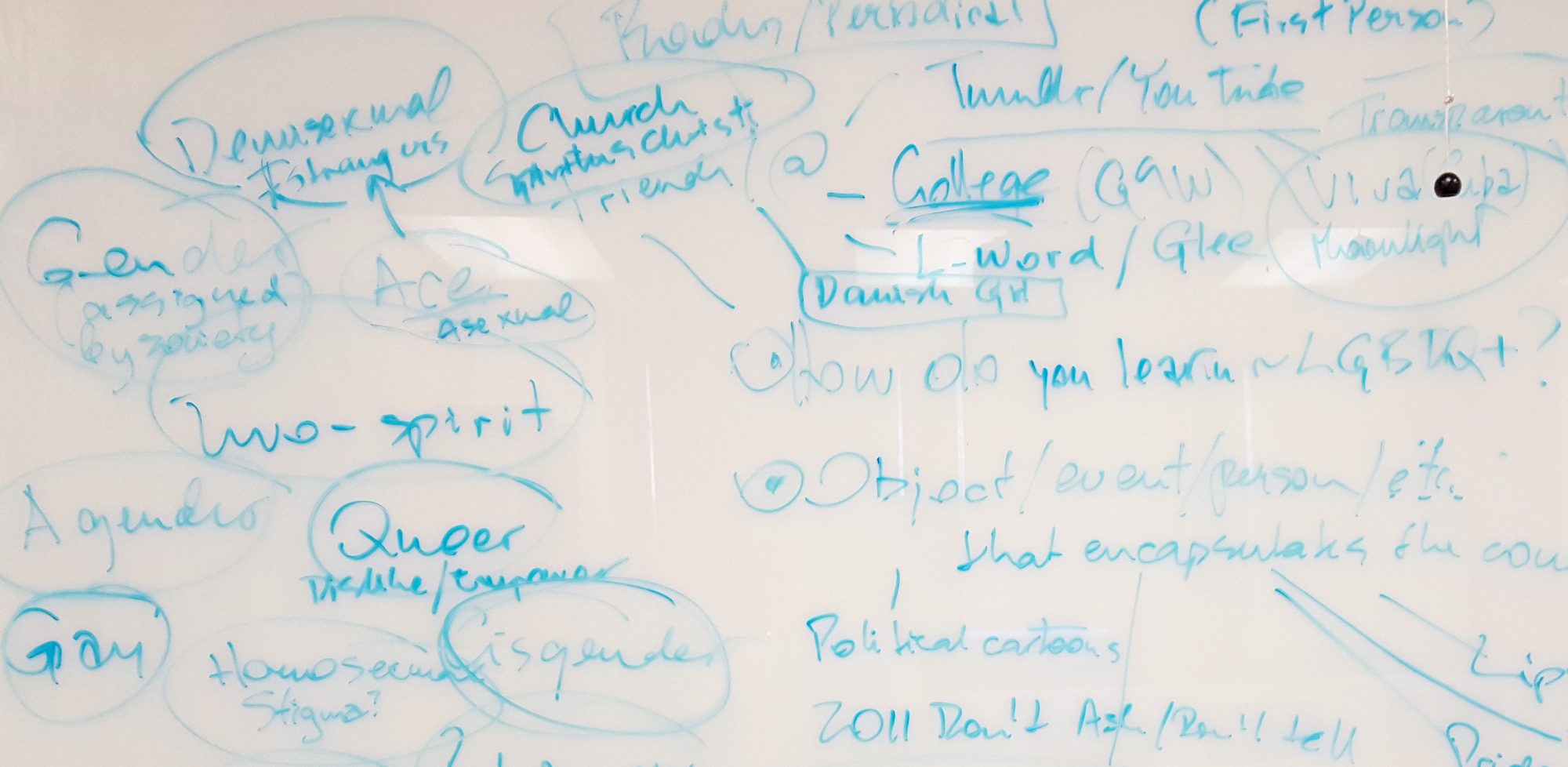One particular article that stands out to me from the exhibit was one from the Democrat and Chronicle from the 1980s, titled “Wife Attempts to Save Marriage to Homosexual Husband.” The article details a woman named Debby asking Ann Landers, an advice columnist, for advice about how she married a man who later came out as gay. The detail that most stands out to me is how desperately she tried to change him, rather than divorce him outright. The article notes that Debby “stayed in that marriage six years anyway, thinking [she] could straighten him out.” Debby truly did love her husband, and desperately wanted to “fix” him, but it did not work. The tone Ann Landers responds with seems to feel very sorry for Debby; it was a most unfortunate mistake on her part to fall for her husband. In fact, she does not mention at all that her husband was struggling too: most likely trying as hard as he could to fit in and hide his same-sex attraction. While this lack of sympathy is not terribly surprising given the negative feelings for homosexuality in the ’80s, it does make me wonder: if the article were written today, would the advice really be any different? Though I’m not sure, I suspect the man’s position might still be ignored, even given improvement to the climate surrounding LGBTQ topics.
Although it’s been some time now, I wanted to bring up the film, “Hidden Figures,” from last year. The movie focuses on three brilliant African American women working for NASA during the earlier stages of the Space Race, exploring their struggle to get the recognition and respect they deserved. What left me feeling unsatisfied was not about the movie per se, but the fact that my prior education on the Space Race (and other similar scientific endeavors) seldom mentioned people of any minority at all. As Hidden Figures showed, there were plenty of non-white women working on the project, yet I was fully unaware of that prior to watching the film. In addition to race and gender, however, my education on non-heterosexual scientific figures is sadly lacking. Off the top of my head, the only such example I can think of is Alan Turing; no other examples come to mind whatsoever, which quite frankly makes me a little sad.
–AG
